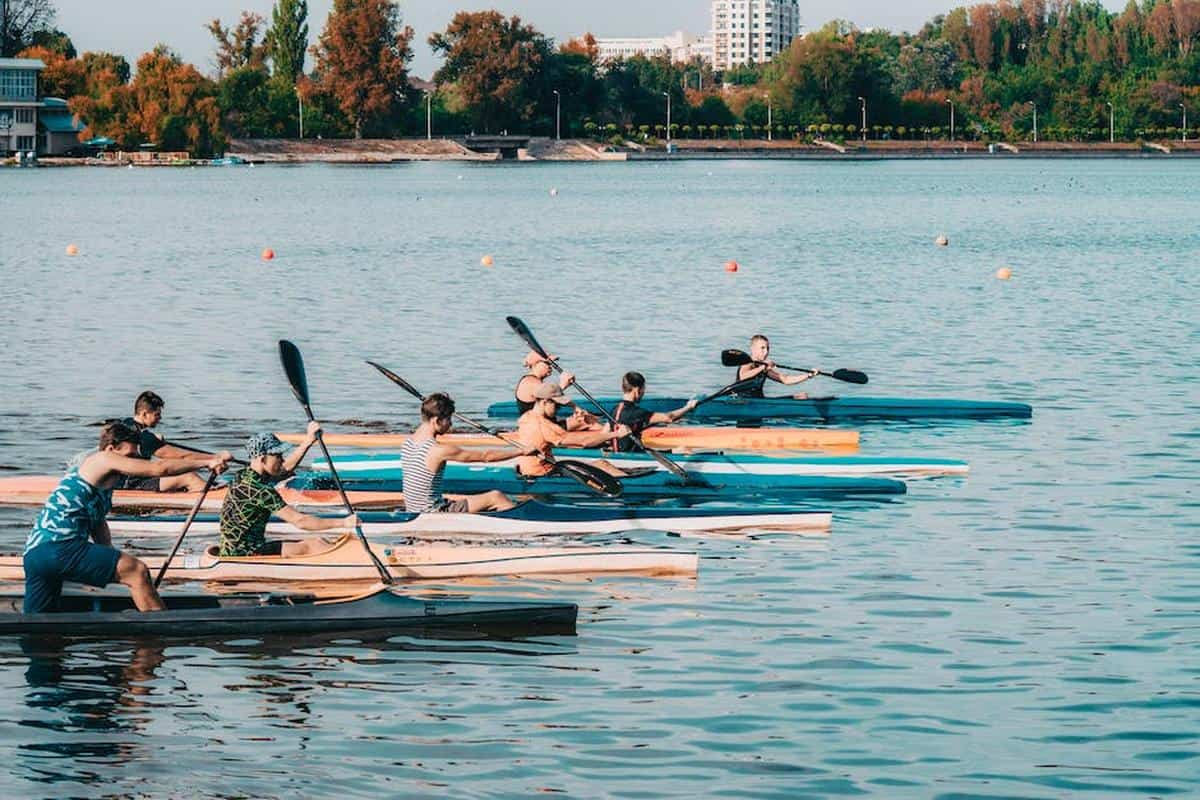Why is Kayaking Good for You?
Are you looking for a fun and exciting way to get some exercise and spend time outdoors? Look no further than kayaking! Not only is it a great way to explore new waterways and enjoy the beauty of nature, but it also provides numerous physical and mental health benefits. In this blog post, we’ll explore why kayaking is good for you and why you should consider taking up this amazing sport.
Table of Contents
- Physical Benefits
- Mental Benefits
- Choosing the Right Kayak Accessories
- Kayaks and Canoes 101
- Kayaking in Any Season
Physical Benefits
Kayaking is a low-impact activity that provides a full-body workout. Here are some of the physical benefits of kayaking:
1. Cardiovascular Health
Kayaking is a great way to get your heart pumping and improve your cardiovascular health. Paddling requires a lot of energy, which can help you burn calories and increase your endurance. Regular kayaking can also help lower your risk of heart disease and stroke.
2. Upper Body Strength
Paddling a kayak requires a lot of upper body strength, particularly in the arms, shoulders, and back. Over time, regular kayaking can help build and tone your upper body muscles.
3. Core Stability
Keeping your balance in a kayak requires a strong core. Paddling engages your core muscles and can help improve your balance and stability.
4. Vitamin D
Kayaking is an outdoor activity, which means you’ll be exposed to natural sunlight. Sunlight is a great source of vitamin D, which helps your body absorb calcium and maintain bone health.
Mental Benefits
Kayaking isn’t just good for your body – it’s good for your mind too. Here are some of the mental health benefits of kayaking:
1. Stress Relief
Kayaking is a great way to get away from the stresses of everyday life. The serene surroundings and rhythmic paddling can help you relax and let go of your worries.
2. Mindfulness
Kayaking requires focus and concentration, which can help you stay present in the moment and practice mindfulness. Being fully present in the moment can help reduce anxiety and improve your overall mental well-being.
3. Connection to Nature
Kayaking allows you to get up close and personal with nature. Being surrounded by water, wildlife, and beautiful scenery can help you feel more connected to the natural world and improve your mood.
4. Endorphin Boost
Like any form of exercise, kayaking releases endorphins – the body’s feel-good chemicals. Endorphins can help improve your mood and reduce feelings of anxiety and depression.
Choosing the Right Kayak Accessories
Before you hit the water, it’s important to make sure you have the right gear. Here are some essential kayak accessories to consider:
- Life jacket
- Paddle
- Spray skirt
- Helmets (for whitewater kayaking)
- Dry bag
- Bilge pump
- Navigation tools (compass or GPS)
For a more detailed guide on choosing the right kayak accessories, check out our blog post: Stay Safe and Have Fun: A Guide to Choosing the Right Kayak Accessories.
Kayaks and Canoes 101
If you’re new to kayaking, you might be wondering what the difference is between a kayak and a canoe. Here’s a quick rundown:
Kayaks
Kayaks are small, narrow boats that are propelled with a double-bladed paddle. They’re typically used for recreational paddling, touring, and whitewater kayaking. Kayaks come in a variety of shapes and sizes, including sit-in and sit-on-top models.
Canoes
Canoes are larger and wider than kayaks and are propelled with a single-bladed paddle. They’re often used for recreational paddling, fishing, and camping. Canoes come in different shapes and sizes, including solo and tandem models.
For more information on choosing the right kayak or canoe, check out our blog post: Kayaks and Canoes 101: Everything You Need to Know Before You Buy.
Kayaking in Any Season
Kayaking isn’t just a warm-weather activity. With the right gear and preparation, you can enjoy kayaking year-round. Here are some tips for kayaking in different seasons:
Spring
In the spring, water levels can be high and fast-moving. Make sure to check the weather and water conditions before heading out, and wear appropriate gear to stay warm and dry.
Summer
Summer is the perfect time for recreational paddling. Make sure to bring plenty of water and sunscreen, and consider wearing lightweight and breathable clothing to stay cool.
Fall
In the fall, the leaves are changing and the scenery is beautiful. Make sure to dress in layers and bring a dry bag to store extra clothing. Be aware of changing water temperatures and potential hazards like fallen leaves and debris.
Winter
Kayaking in the winter requires extra precautions and preparation. Dress in warm, waterproof layers and consider wearing a wetsuit or drysuit. Check the weather and water conditions before heading out, and always paddle with a partner.
For more information on kayaking in different seasons, check out our blog post: Kayaking in Any Season: A Guide to Planning Your Next Trip.
Conclusion
As you can see, kayaking is an amazing activity that provides numerous physical and mental health benefits. Whether you’re looking to get some exercise, reduce stress, or connect with nature, kayaking is a great way to do it. So grab your paddle and hit the water – your mind and body will thank you!
Additional Resources
- 5 Health Benefits of Kayaking – Verywell Fit
- 7 Benefits of Kayaking [Infographic] – Why Kayaking Is So Good For You
- 17 Physical and Mental Health Benefits of Kayaking – Kayak Addicts
- Canoeing and kayaking – health benefits – Better Health Channel
- 8 Reasons You Should Try Kayaking – The Active Times
- The Top 10 Benefits of Kayaking – The Adventure Junkies
- What Kayakers Can Teach Us About Living Well | HuffPost Life
- Best Kayaks 2023 – Forbes Vetted
- 7 Reasons To Go Kayaking Today – LifeHack
- Why Kayaking Is Good For Mind, Body & Soul. – Flat Bottom Boat World

